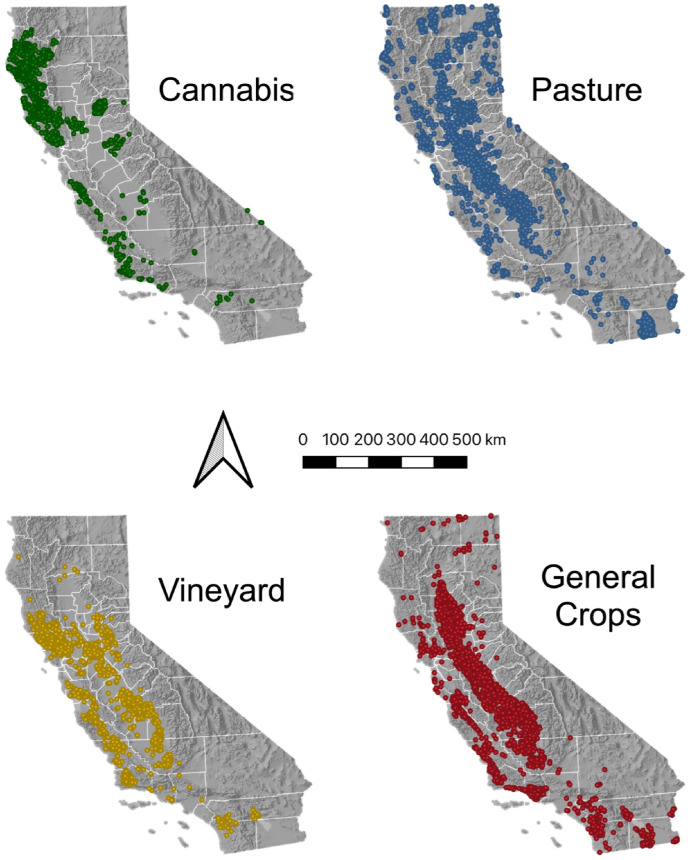Publication

Summary
The licensed cannabis industry represents one of the top five most economically valued agricultural commodities in California, yet farming largely remains on remote, environmentally sensitive, “marginal” lands.
Using mixed methods, this paper examines the determinants of this marginalization, their embedded elaboration, and their relation to historical policy regimes. Our researchers applied Generalized Additive Models (GAMs) to determine the most important predictors of licensed cannabis industry development since the inception of a statewide licensing program in 2018 and to compare the distribution of licensed cannabis to other forms of rural agriculture, including vineyards and pasture, to understand landscape factors and environmental sensitivity of land uses.
Here are a few highlights:
• Counties with higher incomes and more traditional agriculture issue fewer licenses.
• Non-cannabis land users drive cannabis licensing restrictions.
• Marginal land use is socially and geographically produced.
